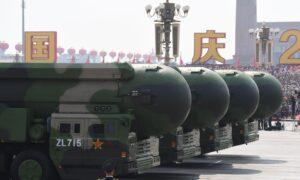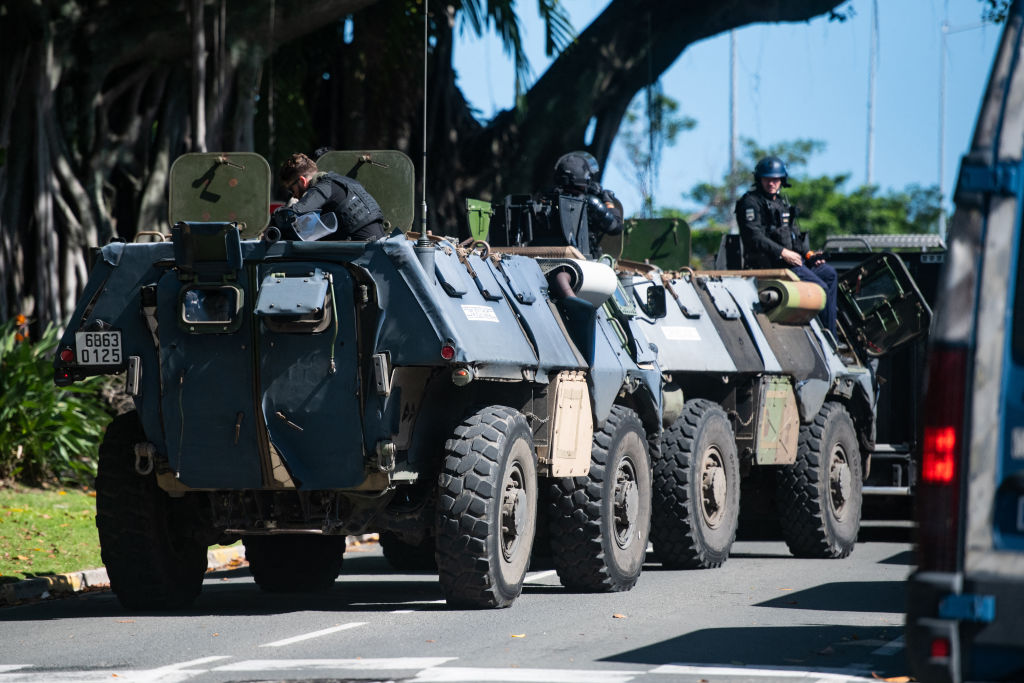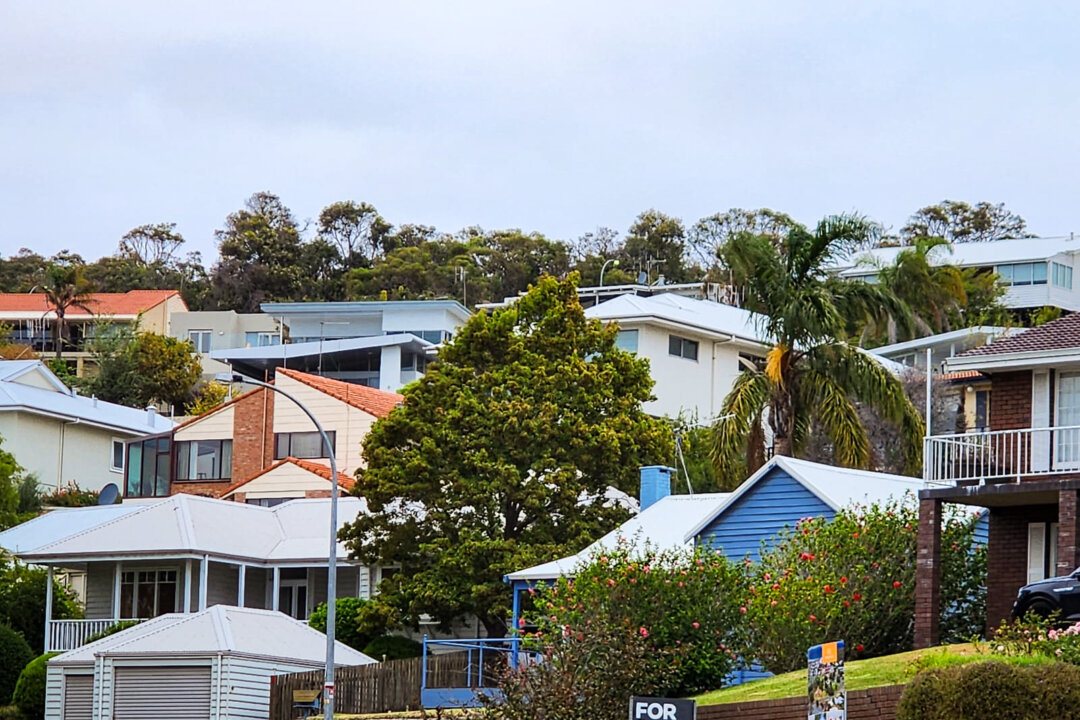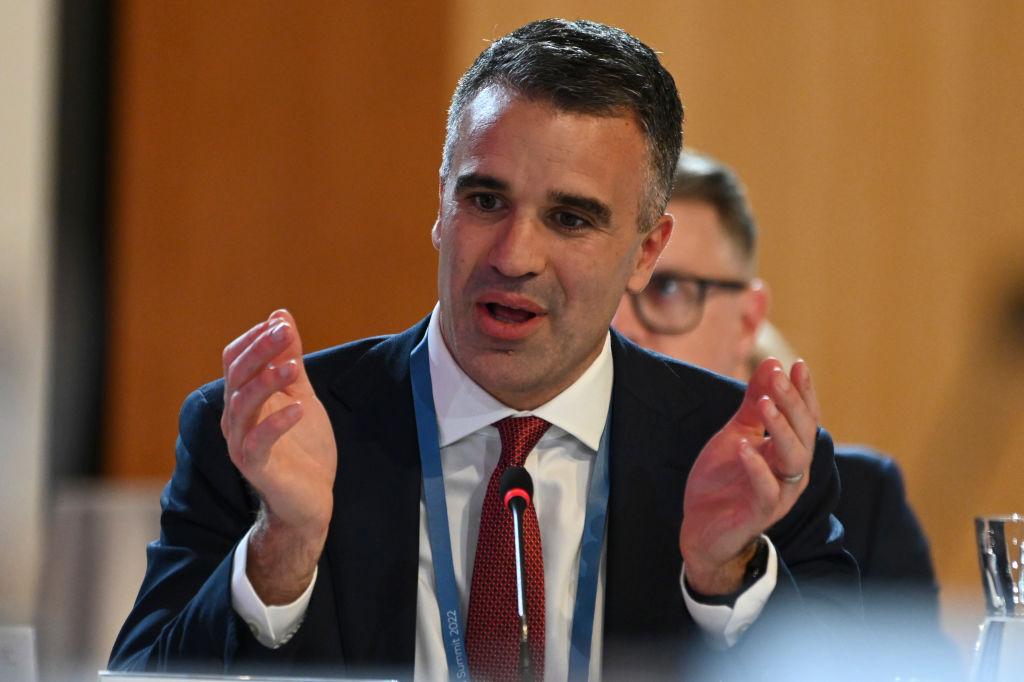The three countries plus the Philippines have committed to ensuring right of passage in the South China Sea despite claims from Beijing.
The United States, Australia, and Japan have pledged to promote stability in the Indo-Pacific amid Beijing’s ongoing belligerence in the South and East China Seas.
In a May 2 meeting in Hawaii, Australian Defence Minister Richard Marles met with Japanese Defence Minister Kihara Minoru, and U.S. Defense Secretary Lloyd Austin III, while underscoring the need to collaborate to uphold the rules of the UN Convention on the Law of the Sea (UNCLOS).
The ministers said that Beijing had exercised “destabilising actions” in the South China Sea, such as unsafe encounters at sea and in the air, the militarisation of disputed features, and the dangerous use of coast guard vessels and maritime militia.
These include interference with routine maritime operations, and efforts to disrupt other countries’ offshore resource exploration.
The ministers reaffirmed a previous agreement to work towards a networked air defense architecture among the three countries to counter growing air and missile threats, including missile defense information-sharing.
As part of this, the Australian Defence Force (ADF) intends to conduct an inaugural regional air and missile defense live fire exercise with the U.S. Armed Forces and Japan Self-Defense Forces at Exercise Talisman Sabre in 2027.
The ministers also condemned North Korea’s repeated missile launches and the increasing military cooperation between the Kim Jong Un-led nation and Russia.
Moreover, the ministers committed to deepening collaboration with Pacific island nations by helping them implement the Pacific Islands Forum’s 2050 Strategy for the Blue Pacific Continent.
The ministers confirmed that their nations will closely work together on Japan’s introduction of long-range strike capabilities.
Leaders Concerned About Disruption of Supply Lines
In a separate meeting also on May 2, the three ministers met with Philippine Defense Secretary Gilberto Teodoro to discuss their concerns over Beijing’s repeated obstruction of Philippine vessels and the disruption of supply lines to the Second Thomas Shoal.
“We meet at a time when the global rules-based order is under intense pressure. We see that in Ukraine with the appalling invasion by Russia of that country, but we see the global rules‑based order under pressure in the Indo‑Pacific as well,” Mr. Marles said.
“And a challenge to the global rules‑based order in Ukraine, is a challenge to the global rules‑based order in the East China Sea, in the South China Sea, in the West Philippine Sea,” he added.
“Our four countries are utterly committed to asserting freedom of navigation, to asserting the UNCLOS, to asserting the global rules‑based order around the oceans of the world, including in the West Philippine Sea.”
Beijing Claims it Has Control Over the Region
Over the past few years, Chinese and Philippine vessels have engaged in numerous confrontations despite the legally binding conclusion of a 2016 arbitration ruling which invalidates Beijing’s claims of sovereignty over the region.
For an instance, in March, a Chinese Coast Guard vessel fired its water cannons against a civilian supply boat off the Second Thomas Shoal—also known as the Ayungin Shoal—resulting in structural damage to the vessel and minor injuries to four people of its crew.
Similar destructive water cannon incidents occurred in the Scarborough Shoal in December 2023, which damaged two Philippine patrol vessels.
Amid the aggression, the public was taken by surprise after Beijing’s Embassy in Manila claimed in April that it had a “gentleman’s agreement” with the previous administration of the Philippines for control over the area.
The Philippine Department of Foreign Affairs denied this and said that the country “has not entered into any agreement abandoning its sovereign rights and jurisdiction over its exclusive economic zone and continental shelf, including on the Ayungin Shoal.”
Australia Calls for Maritime Rights to be Upheld
Repeatedly, Australia has emphasised the importance of upholding maritime rights and freedom, particularly regarding Philippine vessels’ freedom of navigation.
“Australia shares the Philippines’ concerns about dangerous actions by China’s vessels at Second Thomas Shoal today. We call for restraint and respect for international law, particularly UNCLOS,” Australian Ambassador to the Philippines Hae Kyong Yu posted on X in March.
On April 7, Australian forces participated at the naval exercises with the Philippines, United States, and Japanese military at the Maritime Cooperative Activity in the Philippines’ Exclusive Economic Zone.
Philippine President Ferdinand R. Marcos Jr. earlier thanked Australia for its support in upholding and defending the freedom and openness of the South China Sea in a statement addressed to the Parliament of Australia in Canberra in February.
“We draw strength from the consistent and unequivocal support of Australia and the international community for the lawful exercise of our rights, which have been settled under international law,” Mr. Marcos said.
“And so, on behalf of the Filipino people, I thank you, Australia, for standing with the Republic of the Philippines.”














 English (US) ·
English (US) ·  Turkish (TR) ·
Turkish (TR) ·